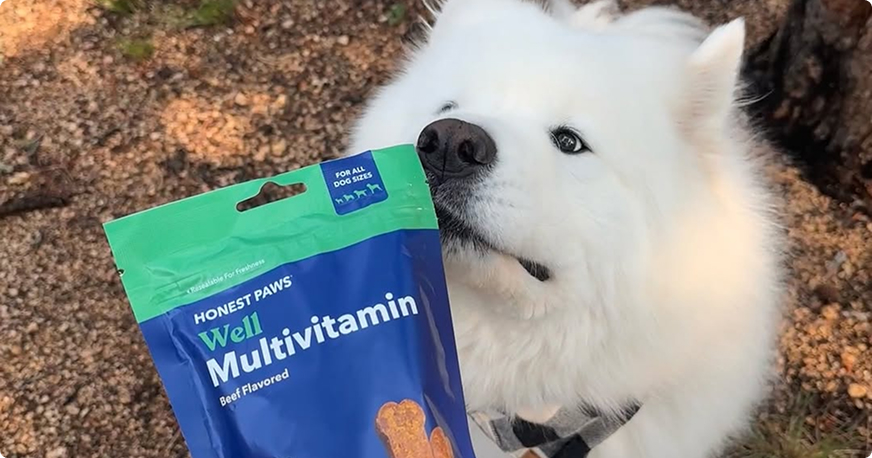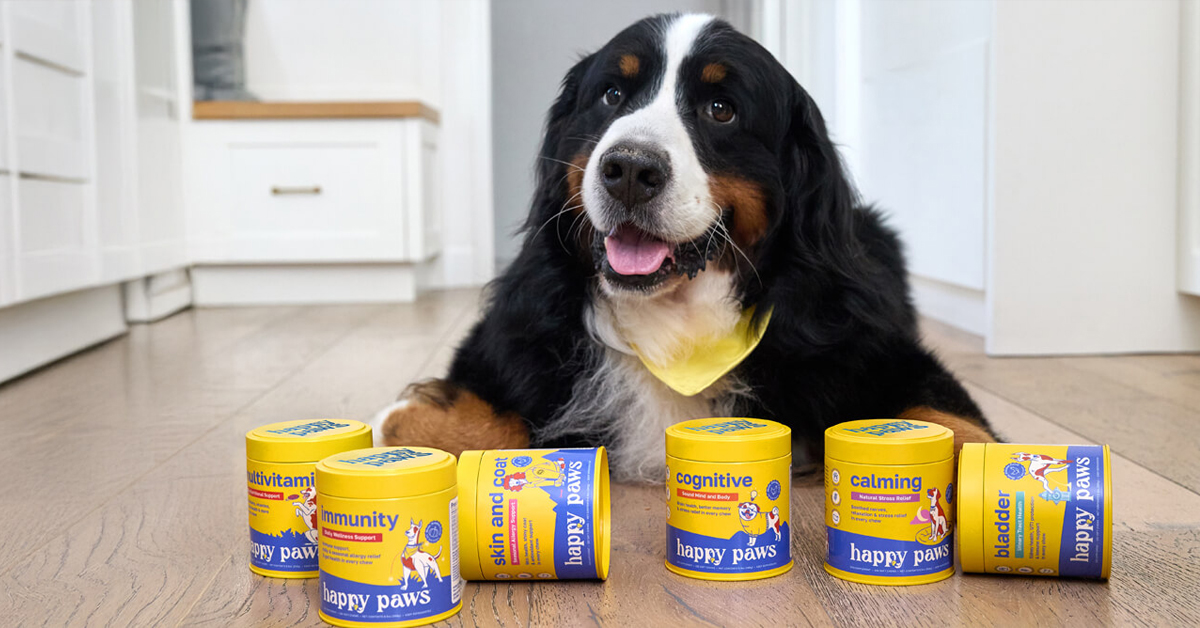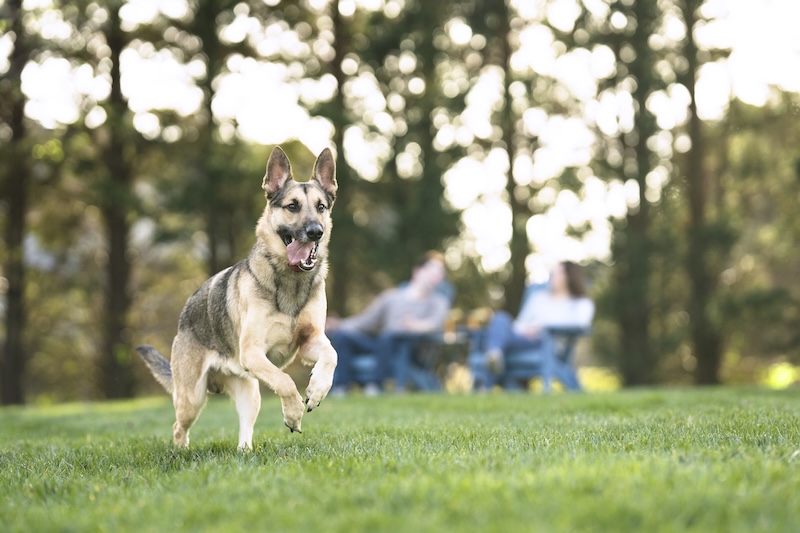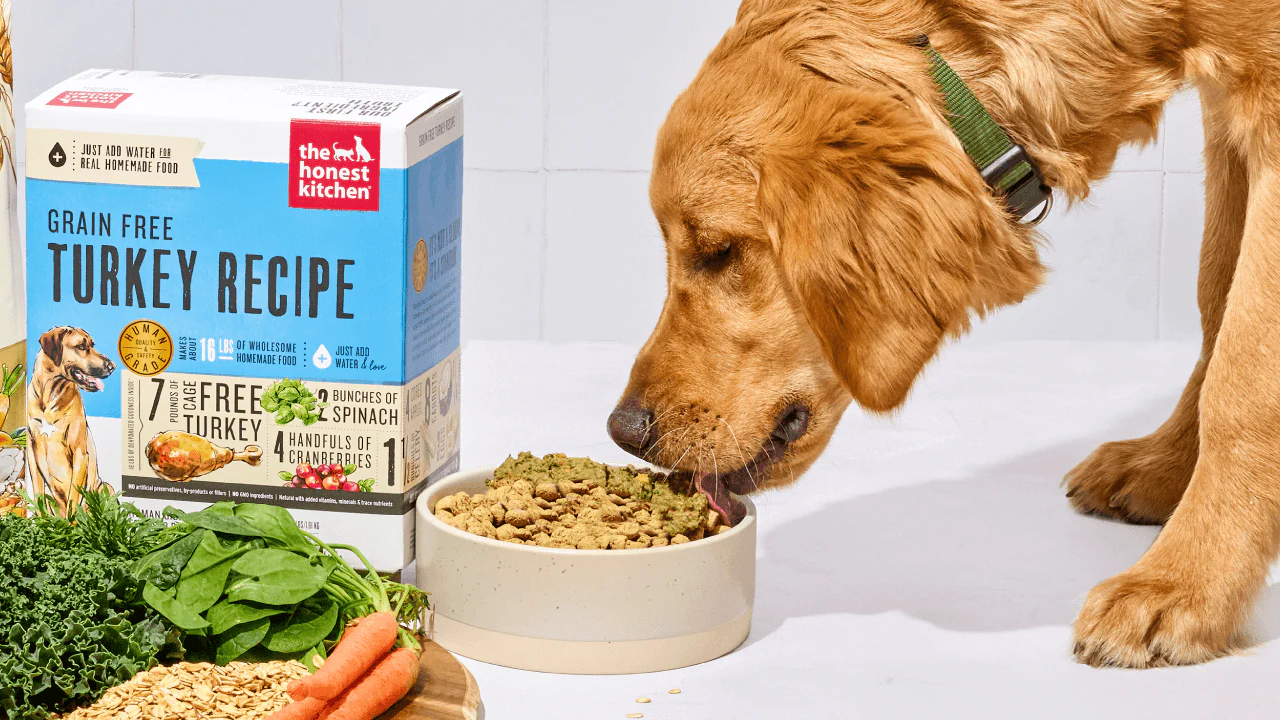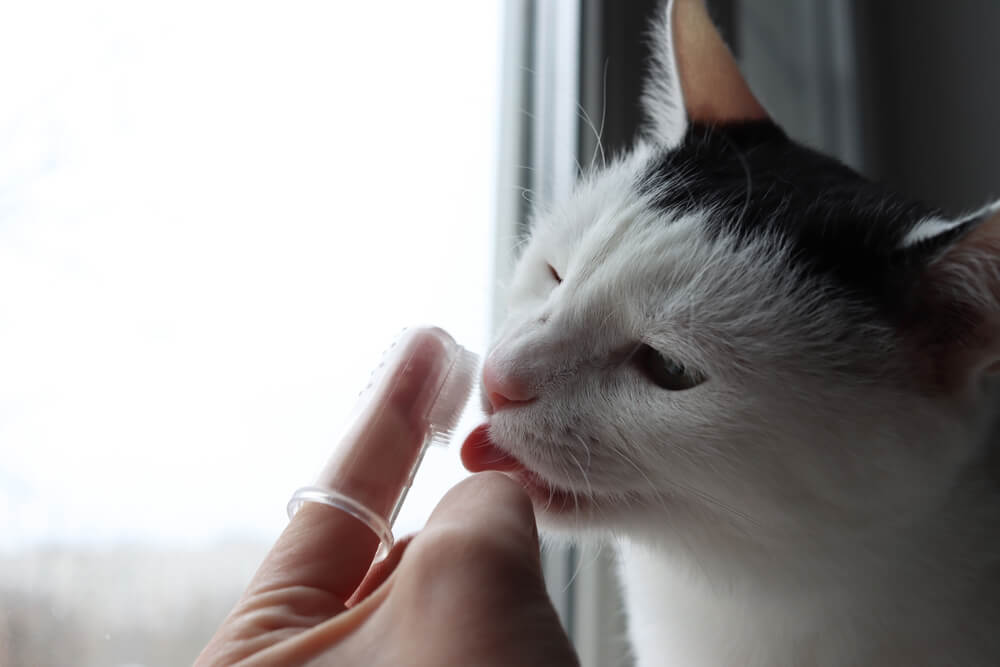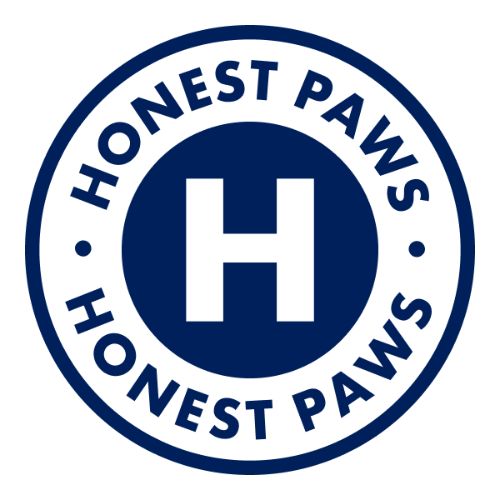Everything on Apoquel: The Popular Allergy Medicine for Dogs


Everything on Apoquel: The Popular Allergy Medicine for Dogs
Table of Contents
Yes, you can give your dog Apoquel to manage allergic dermatitis, both short-term and long-term. Apoquel (made by Zoetis) yields quick onset of relief and does not warrant withdrawal for skin testing.
Overall, Apoquel is a great product for dogs, available at a great price. Plus, you can order it from Chewy and get free shipping and a discount on auto-ship deals.
However, before shopping, you will need the veterinarian‘s approval and prescription. Also, do not forget that Apoquel is FDA-approved for use in dogs over 12 months of age. Simply put, as with all medications, first, you need to talk to your veterinarian and discuss all important safety information.
When to Use Apoquel for Dogs

You can use Apoquel when your dog is experiencing itching and inflammation due to allergic skin disease (seasonal allergy, contact allergy, flea allergy, and food allergy). In addition to canine allergic dermatitis, Apoquel can be used for the control of atopic dermatitis.
Dr. Dwight Andrew Alleyne says that “Apoquel is a great option for allergy treatment in dogs and tends to have less immediate side effects when compared to steroids which is another common treatment used for allergies”.
The active ingredient in Apoquel is oclacitinib – a selective Janus kinase inhibitor (or simply, JAK inhibitor). By blocking these enzymes, the medication blocks itchiness and inflammation.
However, the JAK enzymes are not always bad. In addition to mediating allergic reactions, they also perform various beneficial functions. Here is a list of what each JAK does:
- Janus Kinase 1: Constantly scans the dog’s body and detects the presence of abnormal cells that can become cancerous and destroy invading bacteria, viruses, fungi, and parasites.
- Janus Kinase 2: Plays a major role in the production of bone marrow and stem cells which then transform into red blood cells, white blood cells, and platelets.
- Janus Kinase 3: Critical for boosting the dog’s immune system as it supports the function of its killer cells (T-cells) and B-cells.
Therefore, the JAK inhibitor oclacitinib has both its pros and cons. A veterinarian must decide whether the benefits of treatment outweigh the potential side effects. Based on the situation, the vet may also recommend special precautions.
Benefits and Uses of Apoquel for Dogs
The main benefit of Apoquel is the non-steroid control of pruritus. Apoquel is fast and effective and, therefore, the number #1 prescribed medicine for the allergic itch.
A 2013 paper published in the Vet Dermatol Journal by Cosgrove SB, Wren JA, and Cleaver DM studied the “Efficacy and safety of oclacitinib for the control of pruritus and associated skin lesions in dogs with canine allergic dermatitis.” The study found that Apoquel efficiently manages food allergies, contact allergies, flea allergies, and atopic dermatitis. Other clinical studies have come to the same conclusions.
One year later, in 2014, Gadeyne C, Little P, and King VL reviewed the “Efficacy of oclacitinib (Apoquel®) compared with prednisolone for the control of pruritus and clinical signs associated with allergic dermatitis in client-owned dogs in Australia.” Based on the results, they determined that Apoquel provides relief in just 4 hours.
Oclacitinib for Dog Food Allergy. Food allergies are a widespread issue among dogs. Contrary to popular belief, dogs are not allergic solely to grains and gluten but also to commonly used meats (chicken, beef), eggs, and dairy products. Food allergies can manifest with either digestive upsets or pruritus. In cases of itchiness, Apoquel is helpful.
Oclacitinib for Dog Contact Allergy. There are a variety of causes of contact allergies in dogs, but they all share similar clinical signs. A dog with a contact allergy is most likely to limit its scratching, licking, and chewing activity to the paws as they are first at impact. Using Apoquel is a good first-aid choice.
Oclacitinib for Dog Flea Allergy. Flea allergy dermatitis (FAD) occurs in dogs sensitive to flea saliva. In a super-sensitive dog, even one flea bite is enough to trigger a severe allergic reaction. While long-term management requires removing fleas and using adequate preventives, Apoquel is excellent at providing immediate relief from itchiness and skin inflammation.
Oclacitinib for Atopic Dermatitis in Dogs. In 2013, Cosgrove SB, Wren JA, and Cleaver DM conducted “A blinded, randomized, placebo-controlled trial of the efficacy and safety of the Janus kinase inhibitor oclacitinib (Apoquel®) in client-owned dogs with atopic dermatitis.” The trial found that Apoquel provided “rapid, effective, and safe control of AD.”
Potential Side Effects and Risks of Apoquel for Dogs

All medications have side effects, and canine allergic dermatitis medications are no exception. The most common side effects of oclacitinib include vomiting, diarrhea, decreased appetite or anorexia, and lethargy. In most cases, these side effects are temporary and subside after several days of use.
Other commonly reported side effects include:
- Low white blood cell counts
- New cutaneous or subcutaneous lumps
- Increased susceptibility to infections
On rare occasions, dogs taking Apoquel may develop some of the following adverse reactions:
- Urinary Tract Infections
- Ear infections
- Skin infections
- Respiratory infections
- Bloody diarrhea
- Pneumonia
- Histiocytomas
- Polydipsia (extreme thirst)
- Increased aggression
- Increased appetite
Dr. Dwight Andrew Alleyne notes that “It is important if a dog has to be on Apoquel long term, lab work and exams are done at regular intervals for early detection of any potential long-term effects.”
Apoquel is not universally suited for all dogs. For example, oclacitinib can exacerbate certain pre-existing issues and diseases. Therefore, it should not be used in dogs with severe parasitic skin infestations and evidence of cancer.
As mentioned in the beginning, this medication is FDA-approved for dogs over the age of one. This is because, in younger dogs, oclacitinib significantly increases the risk of pneumonia and demodicosis. Below is a full list of the dogs that must not be treated with Apoquel.
- Puppies less than 12 months of age
- Breeding, pregnant, and lactating bitches
- Dogs with serious infections
- Dogs with liver or kidney disease
- Dogs with pre-existing cancerous conditions
- Dogs with compromised immune systems.
Apoquel Dosage for Dogs
The recommended Apoquel dosage for dogs is 0.18 to 0.27 mg per lb of body weight (0.4-0.6 mg/kg) once a day. In more severe cases, Apoquel can be given twice per day. However, the twice-daily use must not last for more than 14 days.
Therefore, when managing allergic dermatitis, dogs are usually prescribed Apoquel twice per day for a week or two, and then the long-term use is limited to once daily. This scheme ensures fast results and minimizes the risk of side effects.
Apoquel is available in three different strengths – 3.6 mg, 5.4 mg, and 16 mg. Therefore, finding the right dose of Apoquel tablets for your dog requires combinations (which is easy since the tablets are conveniently scored). Here is an explanation behind the combinations:
- Dogs weighing 6.6 – 9.9 lbs need half a 3.6 mg tablet
- Dogs weighing 10 – 14.9 lbs need half a 5.4 mg tablet
- Dogs weighing 15 – 19.9 lbs need one 3.6 mg tablet
- Dogs weighing 20 – 29.9 lbs need one 5.4 mg tablet
- Dogs weighing 30 – 44.9 lbs need half a 3.6 mg tablet and half a 16 mg tablet
- Dogs weighing 45 – 53.9 lbs need half a 5,4 mg tablet and half a 16 mg tablet
- Dogs weighing 54 – 59.9 lbs need half a 16 mg tablet
- Dogs weighing 60 – 89.9 lbs need one 16 mg tablet
- Dogs weighing 90 – 129.9 lbs need one and a half 16 mg tablets
- Dogs weighing 130 – 175.9 lbs need two 16 mg tablets.
The Apoquel tablets can be given with or without food. If your dog’s stomach is sensitive, it is better to give the medication with food. If you accidentally miss a dose, give it as soon as you remember or skip it entirely and then continue with the regular dosing schedule. It is critical not to double the dose to compensate for the missed administration.
When using Apoquel, you need to be very mindful about doses. Giving your dog higher doses increases the risk of immune suppression. On the other hand, if given in lower amounts, it is inefficient.
Apoquel for Dogs Usage Guidelines
Apoquel is a fast-acting medication and will start working in as little as 24 hours. A visible decrease in the dog’s itchiness and other clinical signs is usually achieved after two days of use. However, this med’s antipruritic effects wear off quickly too. Therefore, Apoquel warrants daily administration.
Because of the severity of the potential side effects and adverse reactions, dogs on Apoquel require careful and regular monitoring. Detailed blood work is recommended before starting the medication and then every three months. Dogs receiving oclacitinib should be monitored for the development of infections, new cancerous conditions, and unusual skin conditions.
Apoquel is safe to use in conjunction with many common medications like anti-seizure drugs, NSAIDs, antibiotics, parasiticides, antihistamines, and vaccines. However, the safety of oclacitinib has not been tested with medications for skin allergies, such as corticosteroids (glucocorticoids), cyclosporines, and other systemic immunosuppressive agents.
Finally, a word or two about proper storage. Apoquel needs to be stored at a controlled room temperature (ideally 68-77F, but excursions from 59 to 104 are fine) and out of reach of children and dogs. The medication is not intended for human use, and in dogs, accidental consumption may lead to overdoses. In cases of accidental ingestion, it is imperative to seek medical help.
Apoquel Alternatives for Dogs
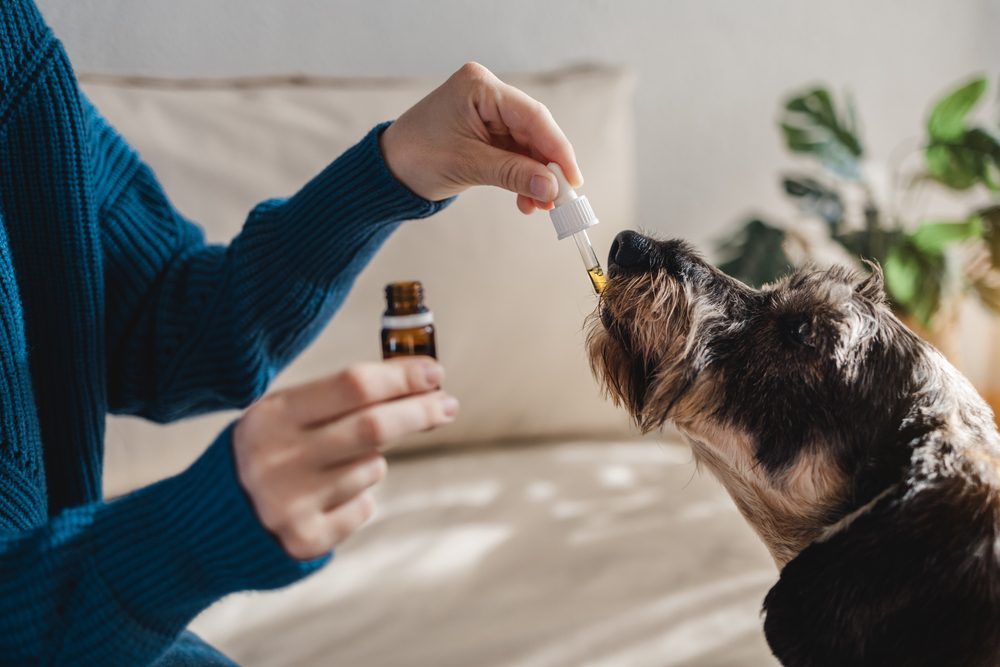
If your dog has a pre-existing condition that prevents it from using Apoquel, you should try using some popular antihistamines, such as Benadryl.
Benadryl (Diphenhydramine) for Dogs. Benadryl is an over-the-counter antihistamine. It works by blocking the histamine receptors. It can be used for various allergy causes and symptoms, including runny nose, hives, itching, skin rashes, watery eyes, wheezing, shortness of breath, etc.
While most pet owners use Benadryl for allergies, it is also good for motion sickness. If your dog’s clinical symptoms are itchiness and skin lesions caused by atopic dermatitis, we suggest trying a more potent systemic immunosuppressant like Atopica.
Atopica (Cyclosporine) for Dogs. Derived from a specific fungus species, Cyclosporine is a systemic immunosuppressant often used to prevent the dog’s immune system when overreacting to allergens. Atopica requires a veterinary prescription and must be used under the veterinarian’s careful monitoring.
Cytopoint for Dogs. Cytopoint is an alternative that is form of immunotherapy that utilizes a monoclonal antibody to inhibit allergen reactions. This option is safe enough to use in dogs less than 12 months of age and has little to no drug interactions.
Finally, if you prefer a more natural approach that is both efficient and free from side effects, you need to give your dog CBD oil or fish oil.
Cannabidiol (CBD) Oil for Dogs. The best 100% natural anti-allergy remedy is CBD oil. Pet CBD oil and products are made from hemp and are perfectly safe for dogs. They help with allergies by modulating the immune system.
At the same time, the health-boosting cannabinoids will improve the dog’s overall welfare and quality of life. We recommend using the Honest Paws CBD Oil and Products – they are organic, human-grade, and made of full-spectrum hemp.
Fish (Salmon) Oil for Dogs. Another natural alternative is fish oil. We recommend the Vets Preferred Premium Wild Alaskan Salmon Oil because it helps relieve dry, itchy skin, which means no more excessive itching.
Plus, it moisturizes and soothes your pet’s skin from the inside out, thus helping achieve a soft and glossy coat. Not to mention that it acts as a natural anti-inflammatory. As the name of the product suggests, it is made of wild-caught Alaskan salmon.
With everything being covered, we should note that managing your dog’s allergy requires veterinary help. Whether Apoquel is the solution is something you need to discuss with the vet. After all, the information provided above is for educational purposes.


